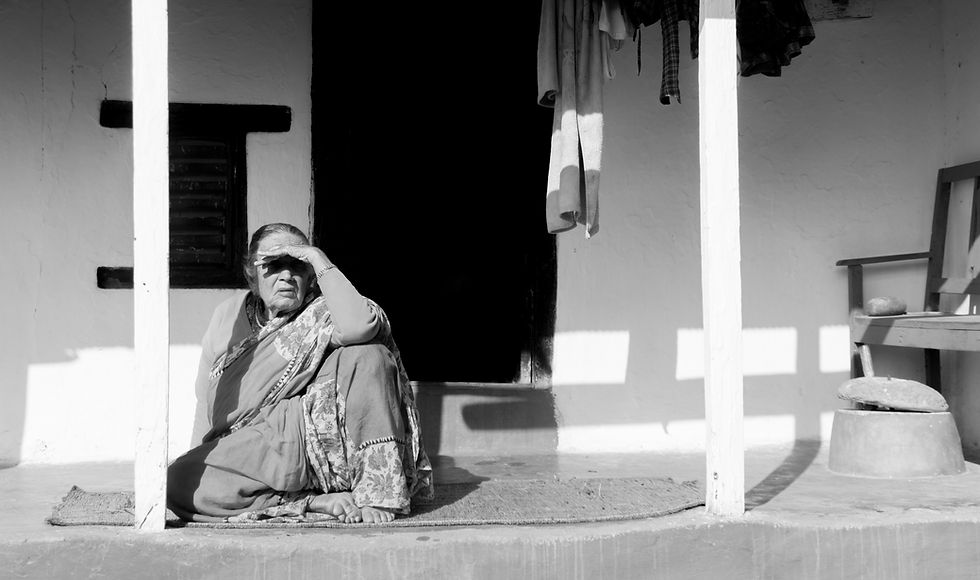An ode to dissent by Aindrila Pal
- Jan 15, 2020
- 2 min read

Photo by Prijun Koirala
My grandmother, or Amma as I called her, was a fiery matriarch. As a child, I'd wake up on Sunday mornings to the sound of crashing pots and pans that she flung around in anger. This was a time when children like us still loved the idea of spending idyllic weekends away at our grandparents', running around in sun-bathed terraces, tightly tucked away in North Kolkata's many bylanes.
If one paid attention, you'd hear her mumbling away about the absence of the help. But then, there was always Dadu to the rescue. Dadu, with his quiet socialism and ardent love of books. Dadu, with the sparse lines of poetry he'd occasionally recite from a tiny, yellowed notebook he always carried around. Dadu, a refreshingly feminist Bengali man, the only one our family had. As the new year slowly crept in, and I found myself at the edge of yet another decade, I quietly wondered, do men like my Dadu still exist?
Dadu was the better chef among the two, and when the mutton stew didn’t come out as planned, Amma could always count on him to save the day. So when on particular Sunday mornings, I’d wake up to Amma’s seething anger, I’d be quietly surprised. Wasn’t Dadu around to help her with things at home? In his heydays, my Dadu was a Communist. And when Bengal was still in the livid grasp of the CPM, Dadu could often be found in meetings and club-ghors where politics and literature frothed in a heavy mix of ideas.
But at the beginning of the 21st Century, major upheavals came up in Bengal’s politics, and with it came a gradual decline of Dadu’s health. His age of rest and relaxation gradually led to him spending more time doing what he loved best: cooking and reading. Thus followed endless multitudes of recipe books and grocery lists and stained utensils, and the occasional Christmas cake he’d bake only for his favorite grandchild - me.
Men like my uncle and father would often smirk in amusement. Watching a 65-year-old man tottering about the kitchen while my Amma practised her harmonium without a care in the world must have felt extraordinary. Men like them couldn’t fathom the idea of cooking and cleaning the house while their wives engaged in other delicate matters. It was simply unheard of!
Today, when I observe my mother and her sisters slowly adjusting to the gender roles that society has subjected them to, I am saddened, heartbroken and disappointed. Dadu had brought them up differently, he had taught them to reject roles and stereotypes, to pursue what their heart wanted and to only do what they thought best, even if it meant making sacrifices and leaving the comforts of home.
What changed? Nothing did. It has all always been the same. It was only my Dadu and Amma who had, for a little while, shown me what liberty and equality truly meant. What having a voice meant. What dissent meant. What harmony meant. And I’m all the richer for it.


